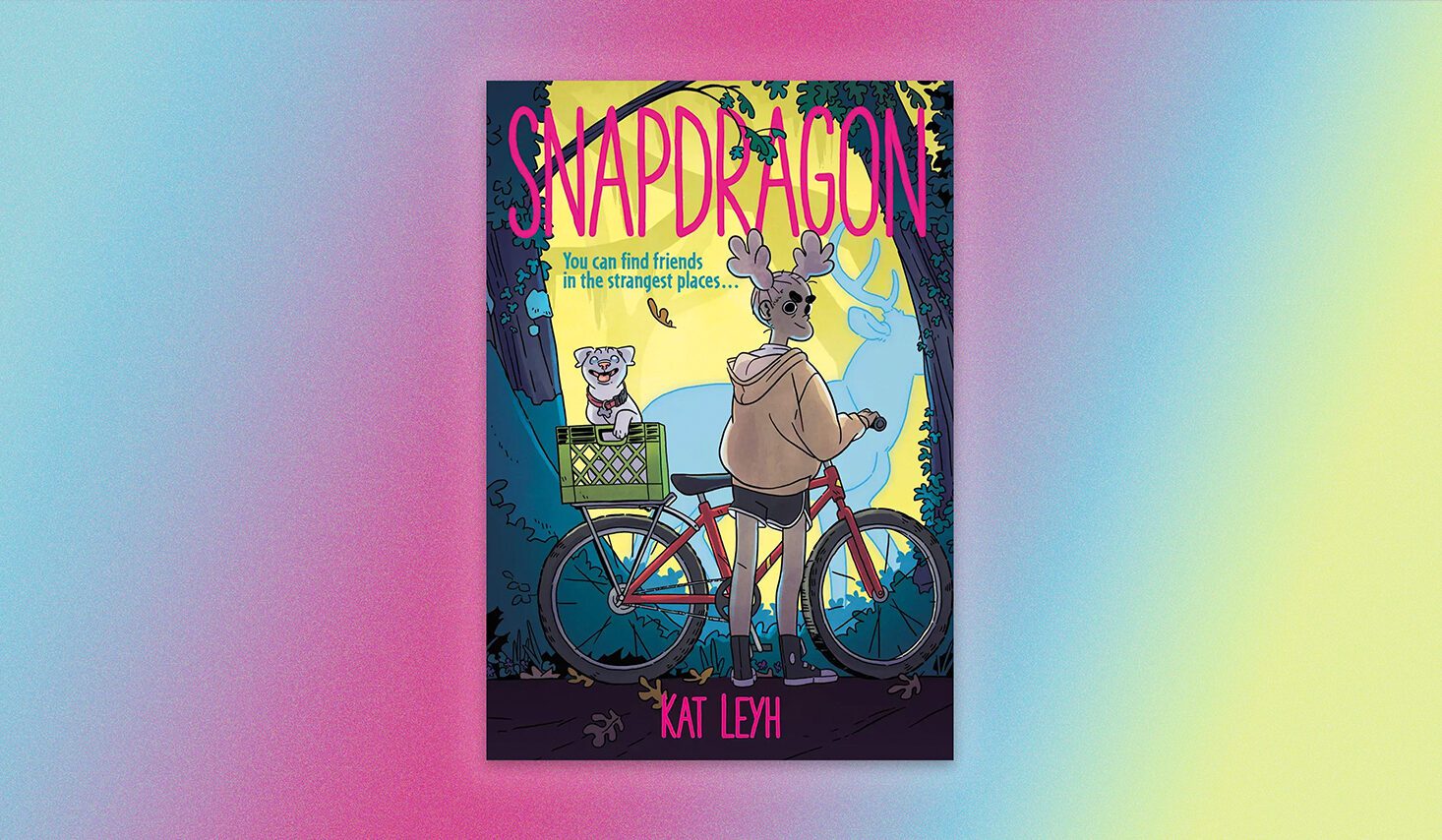
“Our town has a witch. She fed her eye to the devil. She eats roadkill and casts spells with the bones…”
When Snap (a brash, animal-loving teen) loses her dog, she makes her way to the house of the town witch to try and find him. She learns that the witch is called Jacks, and that Jacks found her dog injured at the side of the road and helped him get back to good health again. Snap and Jacks start an odd mentorship, with Jacks teaching Snap everything she knows about taking care of animals. As the days go by, Snap starts asking more and more about Jacks’ past, and discovers that the two have a surprising connection.
In the graphic novel Snapdragon – which I discovered through Durham’s queer indie bookshop Bookwyrm – author Kat Leyh combines elements of magical realism, Southern gothic, and coming-of-age narratives to arrive at a beautiful blend that is both thrilling and heart-warming, both an intricate balancing of emotions and accessible to younger readers. In addition to a very carefully-paced storyline, the drawings also work well to immerse the reader in the rural trailer park settings in which the story takes place.
I was particularly intrigued by the friendship between Snap and Jacks. It is very rare to see kind depictions of older gender non-conforming women, let alone see these women portrayed as people to look up to. This is exactly the expectation that the story comments on: Jacks is stigmatised as a creepy, pet-eating witch by the town, but when Snap takes the time to actually get to know her, it turns out she is actually just a butch woman who happens to live by herself.
This goes further into the magical monster theme of the graphic novel. Throughout the story, the ‘scary’ things (be they people, spirits, animals) are rarely what they seem, and as readers we are asked to think about what it feels like to always be seen as dangerous, disgusting, or even just a bit unsettling. This will be a theme that many people can relate to, but might have particular resonances for LGBTQ+ people: after all, many of us have experiences of feeling excluded, or being made to feel like we don’t fit into a ‘comfortable’ mold of how one should live their lives.
I particularly enjoyed reading this as someone who grew up not being ‘appropriately’ feminine. All the main characters struggle with the gendered expectations placed upon them. In Snap, there is a protagonist who is blunt and brazen but also deeply protective of her friends, a girl who likes reading about animal anatomy and watching horror films, instead of painting her nails. Snap’s mother Vi, on the other hand, is worried about juggling her studies with caring for Snap. In Jacks there is an image of a woman who is deeply uncomfortable with the expectations that she would ‘naturally’ be maternal. Similarly, Snap’s best friend Lulu is a trans girl, and is subsequently teased by her classmates for liking dresses and wanting long hair.
Alongside topics of gender and sexuality, Leyh also weaves in perspectives on class, age and ethnicity. In flashbacks, we learn about Jacks’ youth, and how unspeakable and unimaginable certain topics of conversation were, even in recent memory. Similarly, both Snap and Lulu’s families live in a trailer park, and the implications of this are never ignored: we see Lulu sharing cramped bedrooms with her siblings, and Snap faces a lot of teasing that has class-based undertones.
All of these issues are given their appropriate time to be explored, and yet it never feels like the story loses its pace, or is addressing certain issues just as a tick-box exercise. Snapdragon is not just a graphic novel that takes representation seriously, it is also a great example of craftsmanship and storytelling.
Pippa is an ambassador for Just Like Us, the LGBT+ young people’s charity. If you’re LGBT+ and 18 to 25, you can volunteer as a Just Like Us ambassador – sign up here.


